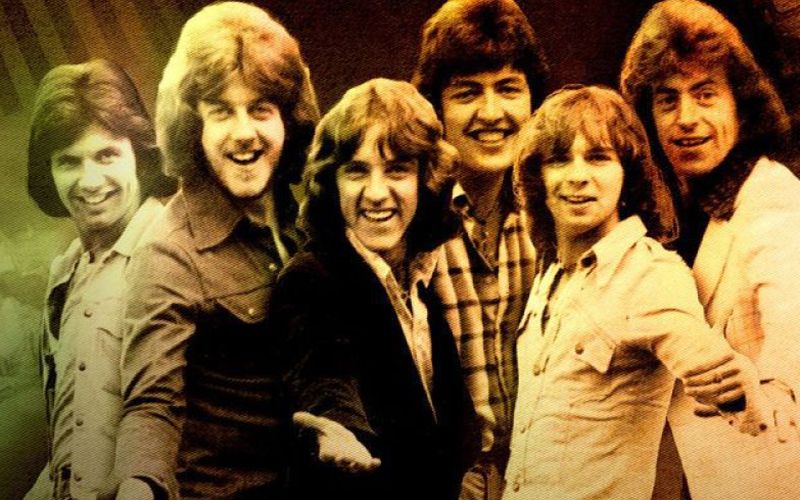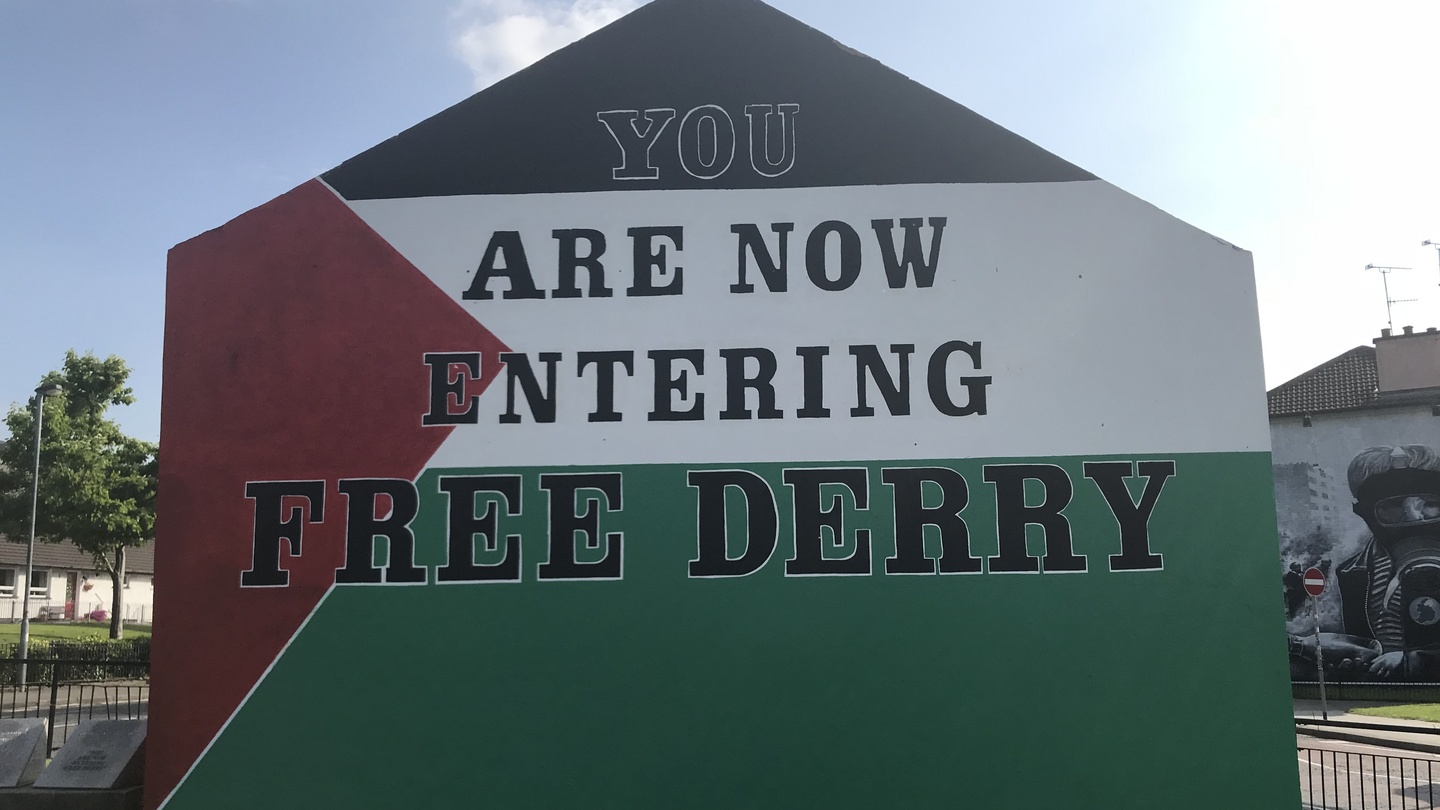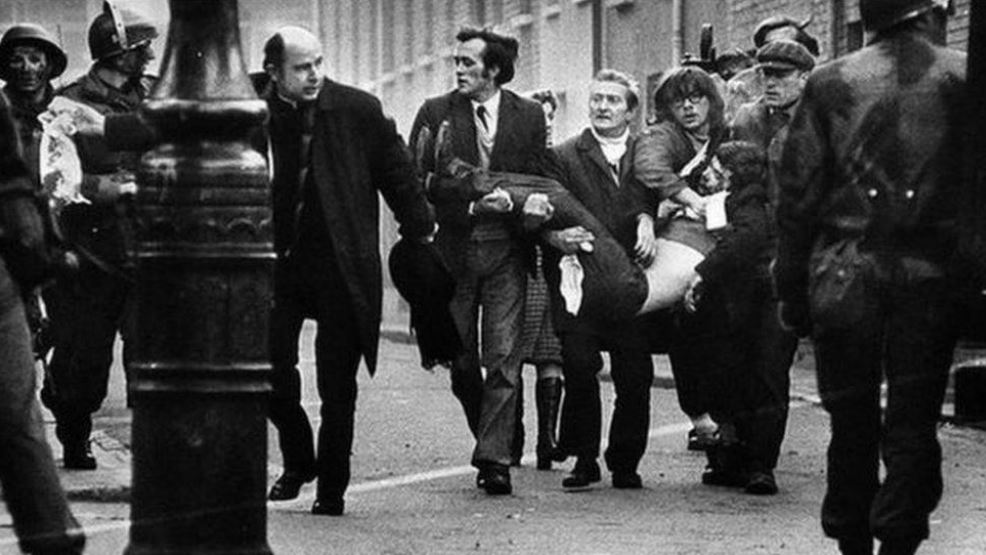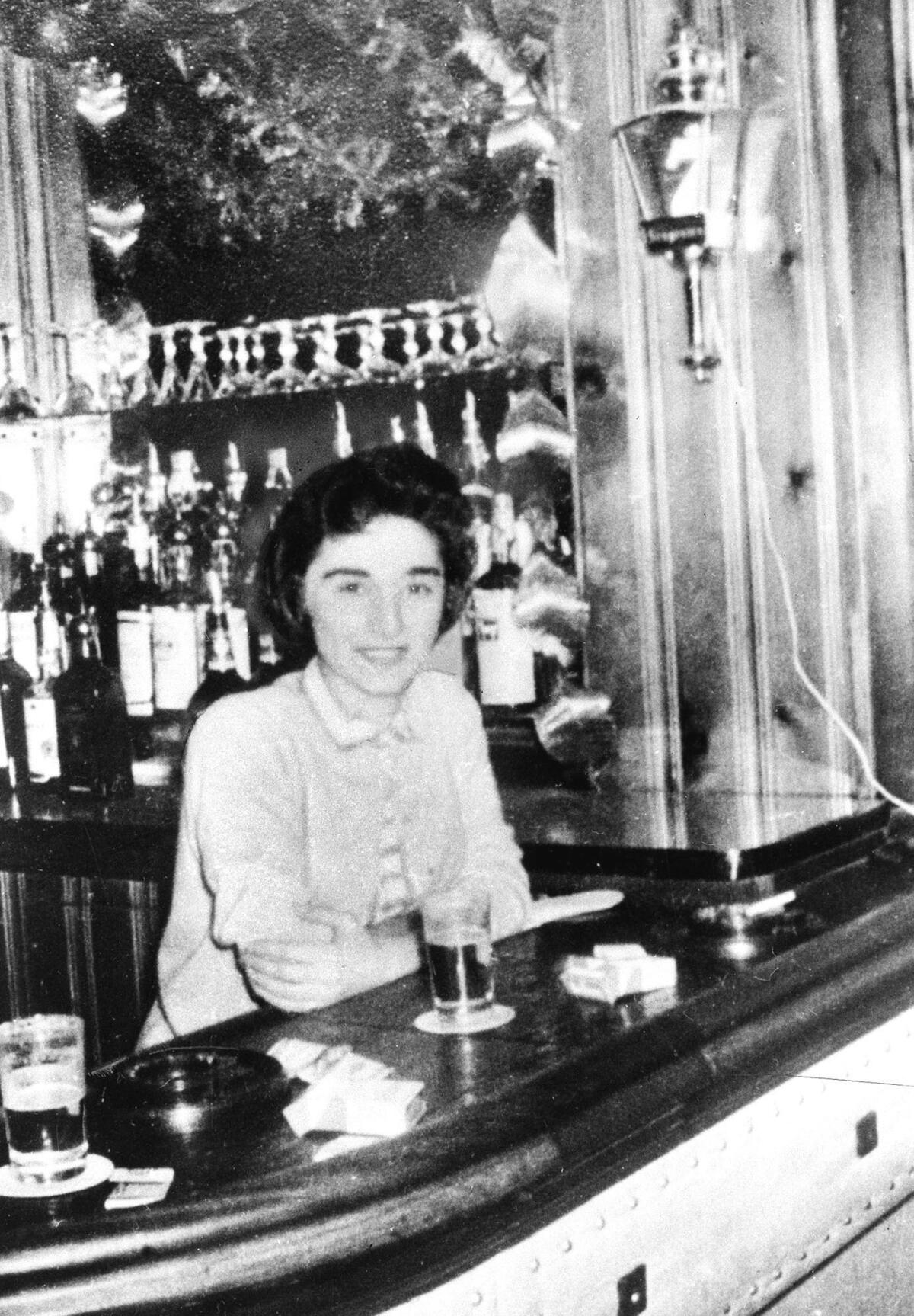 Death on the Border: The Night the Music Died
Death on the Border: The Night the Music Died
The Murder of the Miami Showband
Timeline: 1975
Okay, fine, we’re back to murder again, and I said I wouldn’t be doing only murder. Though technically, the last article really concentrated more on the apathy of bystanders and the murder was almost a side-issue, though not quite. This time, though, it’s pure murder, pure evil, pure and simple. But not only that. It’s perhaps the worst kind of murder, that of innocents. The flames of sectarian hatred and bigotry have been burning in Ireland, on both sides of the religious divide, for well over a thousand years now. Think about that for a moment. Just let it sink in. For half of Christianity, Ireland has been at war with itself, or to be more accurate, with the invaders. In the 12th century King Henry II arrived in Ireland to put down a rebellion, and since then, though the British presence has left our country relatively recently (end of last century) the abiding and eternal distrust, fear and hatred between Catholics and Protestants goes on, mostly across the border, and not with quite as much vehemence and far less violence than it used to, but the march of the Twelfth, when Protestants through the Orange Order celebrate the victory of William of Orange at the Battle of the Boyne, is still a sore point for Republicans, the fact that the route of the march is through staunchly nationalist areas not helping.
The IRA, though technically disbanded, have resurfaced since the Good Friday Agreement, and most recently are being seen in a new, splinter group calling itself, um, the New IRA. Very original. Bombs and shootings and kidnappings are no longer the order of the day in Northern Ireland, and “The Troubles”, as over three decades of virtual civil war in the North is referred to, are over. But old enmities die hard, and there are still those who wish to continue the struggle for Irish independence, though that once noble goal has long, long ago ceased to have any meaning and is now just used as an excuse to kill “Brits and Prods”, and was, for a very long time, also responsible for very indiscriminate bombings and shootings which invariably took the lives of Catholics as well as Protestants, just about all of them innocent.
Like the five lads from Dublin who came up for a gig across the border, and most of whom returned in wooden boxes, the others shaken, shocked and changed forever. I suppose it could be said, in hindsight, why did they drive over the border, knowing the state of things there? Was their music that important? Maybe ask Rory Gallagher, who never failed to play the Belfast Queens Hall whenever he toured, even at the height of The Troubles. But sure, you could say, naive to believe they would not attract unwelcome attention. Can you say though that they deserve to die for that?
 Which Side Are You On: A Brief History of the Troubles
Which Side Are You On: A Brief History of the Troubles
Always amazes me how low-key and understated we are. Others might have called this a period of civil war, guerilla warfare, maybe the Struggle? But we go with the bland-sounding Troubles, which hardly conjures up the kind of images we would get sadly used to seeing certainly in my lifetime: bombed-out buildings, shops, burned, twisted wreckage of cars, dark stains on the street, ribbons wound round lampposts and bins, flowers left at the scenes of too many deaths. We became so used to it that even on the Irish news, nuacht, which was in Irish, I came to know a phrase - “pleasch buma” (flay-isk booma) which was almost always in the reports. It meant, a bomb exploded. It was so commonplace to hear of deaths, maimings and explosions in “the North” that we, to our shame, shrugged and said, oh, another one.
As I already said, and as you’ll see if you read or have read my History of Ireland journal, the occupation of Ireland by the English goes back over 800 years, but always the main target for what became known as the Ascendancy - Protestant settlers from England and Scotland - was the North, the province of Ulster. Originally the fiercest hold-out against the English, it later became, in the wake of Irish independence and the perceived rise to power of the Catholic majority in the south, the new Republic of Ireland, the remaining bastion of English, now British, power. Mostly because the Ascendancy were all Protestants, and they had no wish for a united Ireland, so when the Republic was declared - originally the Free State, but let’s not get into that now - they voted to remain staunchly loyal to the Crown.

After the signing of the Anglo-Irish Treaty in 1921, which created the Free State of Ireland, and the ensuing two years of civil war, Ulster exercised its option not to join, and to remain part of the United Kingdom. Catholics would have had little input into this decision, as the parliament was run by Protestants, despite Catholic Emancipation having been achieved a hundred years earlier. Traditionally, Catholics had been treated as second-class citizens in Ulster, and now with the emergence of the Free State, the Ascendancy feared they were about to take their revenge and join with their brothers and sisters in the South. This also stemmed in part from the fact that, after much to-ing and fro-ing, and a lot of gerrymandering, the six counties which would - and still do - comprise Northern Ireland were deliberately skewed so as to provide the largest Unionist majority possible, resulting in Catholics making up less than 35% of the new region.
But that was still too large a Catholic population for their liking, and with campaigns by the IRA (Irish Republican Army duh) across the border in the late 50s and early 60s, and violence exploding with the formation of the Ulster Volunteer Force, who declared “war” on the IRA and its supporters (basically any Catholics), battle lines were drawn. Both sides engaged in atrocities, from the killing of civilians to the bombing of police barracks, to indiscriminate attacks on peaceful marches by the RUC, or Royal Ulster Constabulary, almost all of whom were Protestant, so guess what march they attacked?
Things began to seriously escalate when RUC officers entered and attacked without any provocation the Catholic area of Bogside in Derry, and the resignation of Prime Minister Terence O’Neill, seen by hardline Unionists as being too soft on Catholics. Back in Dublin, the fiftieth anniversary of the Easter Rising saw the destruction of a hated British landmark, as Nelson’s Column in O’Connell Street was blown up by the IRA, and not a tear shed I would think. However all of this led to increased fear across the border that the IRA were preparing for a new offensive in an attempt to force Ulster into the Republic.
 The Battle of the Bogside: Brothers and Sisters of Ireland! To the Barricades!
The Battle of the Bogside: Brothers and Sisters of Ireland! To the Barricades!
The Battle of the Bogside took place on August 12 1969 when loyalist marchers passing by the Bogside area of Derry were attacked, and the RUC responded with disproportionate force, resulting in over 1,000 people being wounded, and over 490 of their own. As it became clear the police had no real training to prosecute such a riot as the Bogside was becoming - with the place being pronounced “Free Derry” (as opposed to the British/Unionist Londonderry) and standing as a symbol of nationalist resistance to the UK Government and to the Unionists - the British Army were sent in. Initially they acted more as observers, refusing to cross the barricades that had been set up by the Bogside residents, and patrolling the border of “Free Derry” only, making it a no-go area as the RUC withdrew. This of course would not last, and marked the arrival of British troops in Northern Ireland, spelling very bad news for Catholics.
It should be noted that though the Irish Taoiseach (tee-shock; Prime Minister) at the time, Jack Lynch, warned of the Republic getting involved and threatened to send the Irish Army in (I’m sure the Brits were quaking!) nothing came of his threats, which turned out to be bluster. Lynch knew the last thing the new Republic, barely twenty years old at the time, needed was to attempt to take on the might of the British Army and the Crown, so he paid lipservice to support for the Bogside and Catholics in Northern Ireland, but basically shuffled away with his hands in his pockets, unwilling to commit Ireland to a full-scale war in which she would have been very quickly annihilated and no doubt reabsorbed back into the United Kingdom.
The riot in Derry had of course found itself mirrored by its contemporaries throughout nationalist Ulster, and though the Battle of the Bogside ended after four days, the unrest resulted in over 1,500 Catholic families being forced or deciding to flee to the border, where the Irish Army set up a camp at Gormanston for what could only then be described as refugees in their own country. The two opposing areas of the Falls Road (Republican) and Shankill (Loyalist) were divided by an actual wall, constructed by the newly-arrived British Army, laughingly called the Peace Wall, so as to keep the two fierce enemy communities separate.
In October, when a report recommended disarming the RUC and disbanding the hated B-Specials, the Ulster Special Constabulary, loyalists rioted and the Ulster Volunteer Force (UVF) carried out a series of bombings across the border in the Republic. The British Army would soon find its role as impartial peacekeepers would have to change, and they would be forced to take a side, this inevitably being on that of the Unionists. When the government introduced internment without trial, over 350 Catholics were imprisoned in what would today be considered a police state; no due process, no evidence, no presumption of innocence, a real case of “Catholic as charged”, and of course this led to many non-violent people who had been imprisoned becoming radicalised and ready to fight for the nationalist cause. By 1975 the number of detainees would reach almost 2,000. Attacks by loyalist paramilitaries on Catholics were completely ignored by the British Army, and internment was supported by the British government.
And then came Bloody Sunday.
 Bloody Sunday: January 30 1972
Bloody Sunday: January 30 1972
Also known as the Bogside Massacre, but generally recognised as Bloody Sunday, if there was a nadir in the relationship between the British Army and the nationalist population of Northern Ireland, there could not be a more striking delineator. The chances are that perhaps, even if you live in the States, you’ve seen footage of this: a man in a black suit - a priest - with a hat crouching down and waving a white handkerchief as he attempts to lead other unarmed Catholics to safety. For us, this image became as iconic, as emblematic of the Troubles as, say, the raising of the US flag on Iwo Jima, or the lone man standing facing the Chinese tank in Tiananmen Square, or the painting of the last stand of General Custer at the Little Big Horn. In that one image is encapsulated all the brutality, senselessness and sectarianism of the Troubles. A moment caught forever in time, it freezes the blood when you know the story behind it.
And here it is.
To some extent I guess you can say it sort of went back to where it all began. The Bogside in Derry had been, as already outlined, the turning point for the British Government, when the then-Prime Minister had requested military assistance to deal with the riots which had broken out between residents and the RUC, and the Army had once again come to Northern Ireland. Since then, Derry, or “Free Derry” had become a hotbed of Republican resistance to Unionist rule and a vocal - and physical - opponent of internment. Daily clashes took place between British Army soldiers and nationalists at the barricades previously erected by the residents, which had made “Free Derry” a no-go area both for the RUC and the Army.
As usual, the problem had its roots in a march, but that’s only half the story.

As one of his last acts as the final Northern Ireland Prime Minister, Brian Faulkner banned all marches through the province for the year of 1972. This was mostly due to the perceived provocation of the Apprentice Boys who marched on the Twelfth of August (known simply as “The Twelfth”) to commemorate the victory at the Battle of the Boyne. However with internment disproportionately aimed at Catholics, a march was planned in defiance of the ban, and went ahead, resulting in major injuries to the protesters, mostly unarmed but throwing stones and bottles, as the British paratroopers fired rubber bullets at them and then waded in. Allegations of brutality and overzealous violence were levelled at the paratroopers, but who was going to stop them?
Undaunted - certainly bloodied but unbowed - the protesters set up a second march, this to take place on the last day of January. This was given reluctant approval, given the events of the previous fortnight, but with restrictions. The commander of the Army in Northern Ireland, General Robert Ford, decided - poorly, it would seem, considering how violent they had already been - to use the paratroopers from the same regiment (1 Para) that had stopped the march on January 18, to arrest anyone seen to be trying to go past the limit, set as Guildhall Square, where Parliament sat. The crowd has been estimated to have been between 10,000 and 15,000.
On seeing their route to the city hall blocked, leader Ivan Hall MP diverted the march, heading towards Free Derry Corner, but some of the marchers began throwing stones at the soldiers. When paratroopers began opening fire from an abandoned building, in response to missiles thrown up at them, it wasn’t rubber bullets they were using. Just after four o’clock the order was given to arrest the rioters, but contrary to what he had been told, the commander of the paras made no distinction between peaceful marchers and rioters, and as they chased everyone through the streets in armoured cars and on foot, the same brutality was in evidence as the troopers made it clear they were not in any way impartial, and took their anger out on the marchers.
As the routed marchers reached the barricades at the Bogside, the paratroopers opened fire, killing six people - all unarmed - and wounding another. The picture which commemorates the attack shows Jackie Duddy, who had been sheltering alongside a priest, and was shot in the back, as the priest, Father Edward Daly, tries to get him and the others with him to safety, his flag of surrender and his status as a priest, both clearly visible, ignored by the army. In the space of ten minutes, thirteen people had been shot dead (a fourteenth would die of his wounds a few months later) and twelve injured (not counting the man who later died). None were armed, and so it will come as no surprise that the paratroopers sustained no injuries, and certainly none of them were killed.
After what can only be described as the massacre, and surely bringing to mind the one which became known as Peterloo a century previously, the bodies of the dead were callously and unceremoniously dumped into armoured personnel carriers by the paratroopers, with no more regard than if they had been the corpses of animals.
As expected, the British Parliament backed up the paratroopers’ story that they had fired at armed men, despite much photographic evidence confirming the opposite, and the fact that almost every fatality on Bloody Sunday had been shot in the back, and therefore hardly a threat if running away, while two people were - surely deliberately and with great callousness - shot in the face as they went to the aid of a third. To nobody’s surprise, Commander Lifford, who had directed the massacre, far from being removed from command or censured, was awarded the OBE by the Queen. In Ireland, a national day of mourning was observed and during a furious protest outside the British Embassy in Dublin the place was burned to the ground, though not with anyone in it. Irish Minister for Foreign Affairs, Patrick Hillary (later to be President of Ireland) went to the United Nations Security Council, demanding a UN peacekeeping force be deployed to Northern Ireland. Never happened of course.
An initial, rushed, and certainly whitewashed enquiry a few months later supported the actions of the paratroopers, but everyone in Ireland knew this was bollocks, however the British would not acknowledge the truth for another forty years, when in 2010 the results of the later, Saville Enquiry, were made public. This report was damning against the paratroopers, supporting the contention that everyone killed was unarmed, shot while running away, and further, that evidence that had been given to the original Widgery Enquiry had been false, and that the Ministry of Defence had done all they could to impede the Saville Enquiry.
In response to both the violence of Bloody Sunday and the subsequent IRA reprisals, including an attack on an army barracks that killed seven soldiers, and believing Stormont (the Northern Irish Parliament) incapable of maintaining order and dealing with the situation, the British Government dissolved it and ruled direct from Westminster, installing a Secretary of State for Northern Ireland In Belfast. This was the first time any part of the island had come under direct British rule since the Treaty in 1921, and represented a tightening of the grip on power of hardline Unionists, and the further disenfranchisement of Catholics, as history went backwards for them; Daniel O’Connell need not have been born. The barricades at “Free Derry”, a direct challenge to the new total British rule, were dismantled and the Bogside ceased to be a no-go area.
In 1973 the new Northern Ireland Assembly was created, a supposedly bipartisan parliament which would allow “power-sharing”, proportionate representation from both Unionists and nationalists, but of course, put two lions in the one cage and you’re asking for trouble. The Unionists saw the new Stormont as nothing more than a veiled attempt to move towards their most feared result, a united Ireland, while the nationalists were not interested in dealing with their hated enemy, and anyway a united Ireland was their stated goal, and always had be. The word compromise was not in the dictionary of either side. The agreement was dead within the year, on the back of, among other things, a general strike by Unionists and a concerted campaign of bombing attacks by the UVF in the Republic.






















 Linear Mode
Linear Mode
